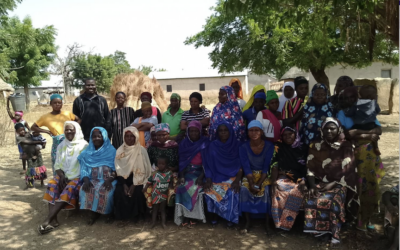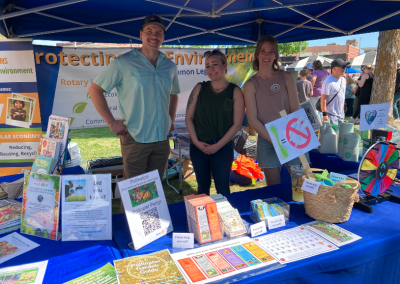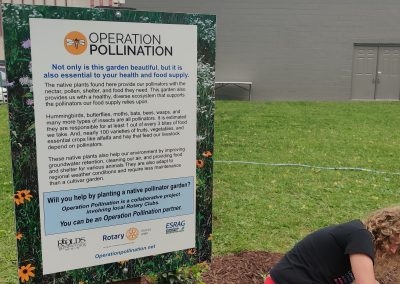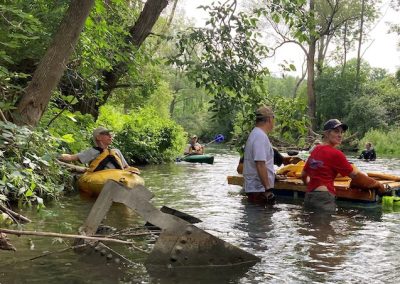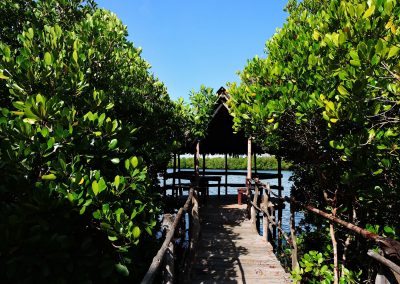THEME
Biodiversity
The term biodiversity (from “biological diversity”) refers to the
variety of life on Earth at all its levels, from genes to ecosystems,
and can encompass the evolutionary, ecological, and cultural
processes that sustain life.
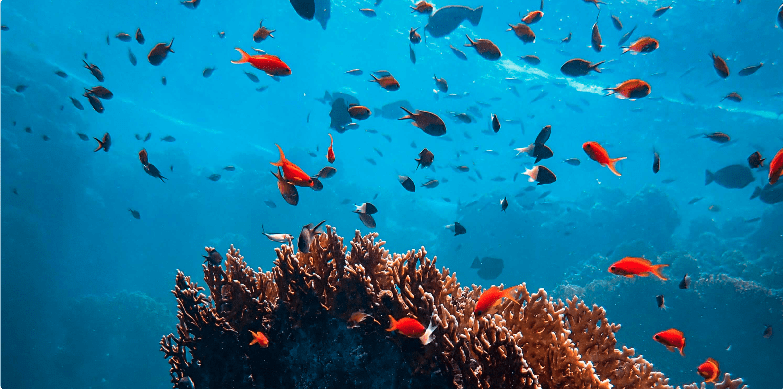
WHAT IS IT?
Biodiversity at ESRAG
How does biodiversity benefit humanity?
Earth’s biodiversity, now suffering catastrophic losses because of human activity, is essential for human communities to survive and thrive. We depend entirely on nature’s ability to provide us with ecosystem services. Here are some examples. Indigenous plants capture water for our aquifers, keep soil fertile, and prevent erosion. Healthy, unpolluted watersheds protect our drinking water. Terrestrial and marine forests sequester carbon and defend us from drought, heat, sea-level rise, and storm damage. A huge share of the human food supply depends on pollinators, and mangroves and coral reefs provide the habitat for our fisheries. Protecting wild habitats from human encroachment reduces our risk of pandemics.
BIODIVERSITY
Learn more
Register for ESRAG’s Annual Meeting: Breakthrough Progress on the Climate Roadmap
Annual General Meeting: Progress on the Climate Roadmap Join your fellow ESRAG members on Zoom to celebrate the progress we've made together over this past year in inspiring Rotary to address the climate, biodiversity, and pollution crises. Your involvement in ESRAG...
Pioneering agroforestry with women in Ghana
Ummy Farms Empowerment Initiative is a transformative project dedicated to uplifting local women farmers through sustainable agriculture practices.
Rotarians accelerate success of Million Trees Miami
Million Trees Miami’s purpose is to rectify the city’s tree canopy. Rotarians are recognized as a major part of the solution.
Take Action on Biodiversity
Through ESRAG, you will discover an array of projects through which Rotarians are protecting biodiversity and advancing many other Rotary humanitarian goals including safe water, community economic development, and health. Examples include regenerative farming, watershed restoration, river clean-ups, planting trees to rebuild soil and provide food, and pollinator gardens. Some of these projects advance resilience and generate new sources of income for communities. For example mangrove projects buffer storms and generate carbon offset credit revenue which communities can use for other needs like education or health care.
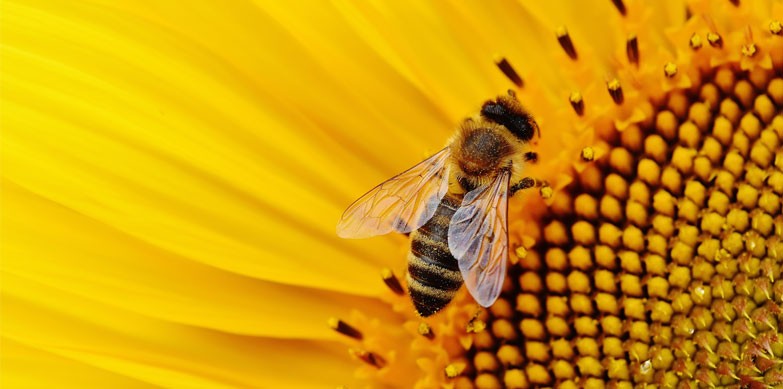
Operation Pollination
Operation Pollination enables and encourages Rotarians to engage in pollinator protection and education projects.
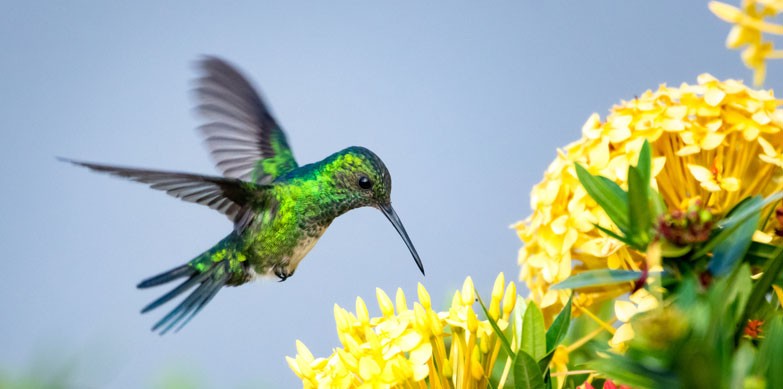
Pollinators
The Pollinator Task Force empowers and equips Rotarians to protect pollinators and educate about their importance.

Watersheds, Rivers, Oceans
Cleaning the Rivers of the World provides support, leadership, and
fellowship for its members and…
BIODIVERSITY
Featured Projects
Projects surrounding biodiversity.
BIODIVERSITY IMPACT
Resources
ESRAG’s biodiversity theme brings together their
“Life on Earth” activities into one cohesive unit.
What does life on Earth cover?
This Biodiversity covers four great realms that can be visualized in the diagram below.
Biodiversity of Life
Seeking to slow and stop further loss of species
Ecosystem Restoration
Seeking to restore ecosystem services of the web of life
Sustainable Production
Seeking to produce and harvest resources efficiently
Environmental Resilience
Seeking to establish a sustainable balance between humans and biodiversity
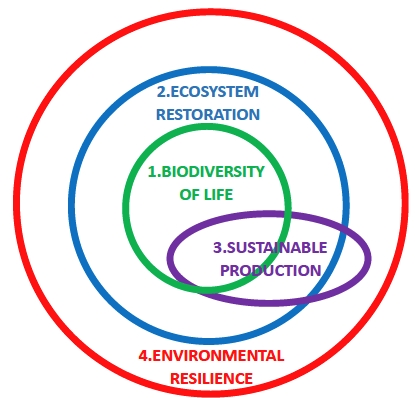
Mission
In keeping with the mission for all Rotary Action Groups, the mission of ESRAG’s Biodiversity Task Force is to explore the different avenues of service that are available to the Rotary Family, and specifically to be engaged with projects for Supporting the Environment.
Primary Actions
BIODIVERSITY
Featured Events
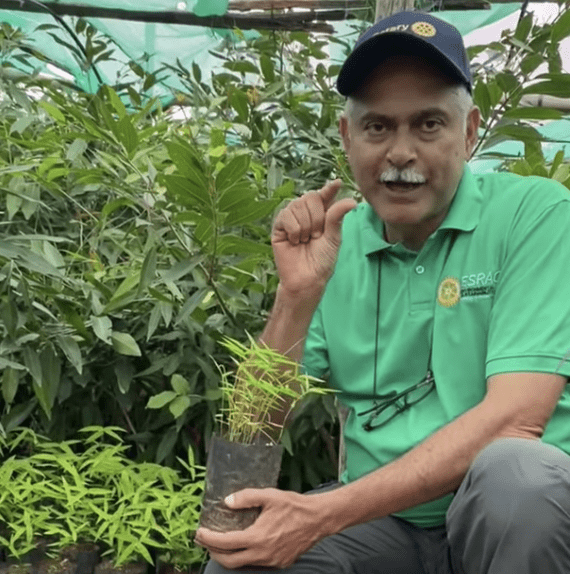
Speaker: Can Atacik
Topic: The intersection of intentions, innovation, and finance.
(GMT +00.00) Greenwich Mean Time (Dublin)
More info
Speaker: Researchers of Helsinki University, business leaders, Rotarians
Topic: Climate Change and the Baltic Sea
(GMT-05:00) Eastern/Indiana Standard Time
More info
Speaker: Dr. Brett Matulis
Topic: Being an Ambassador for Climate Solutions in your Community
(GMT +00.00) Greenwich Mean Time (Dublin)
More info
Speaker: Jules Mongane
Topic: Climate change is a current threat that is affecting the globe. Refugees are not excluded from the effects of climate change but are highly affected and very vulnerable.
(GMT +00.00) Greenwich Mean Time (Dublin)
More info
Speaker: Cinderella Ndlovu
Topic: Climate Action, Youth
(GMT +00.00) Greenwich Mean Time (Dublin)
More info
